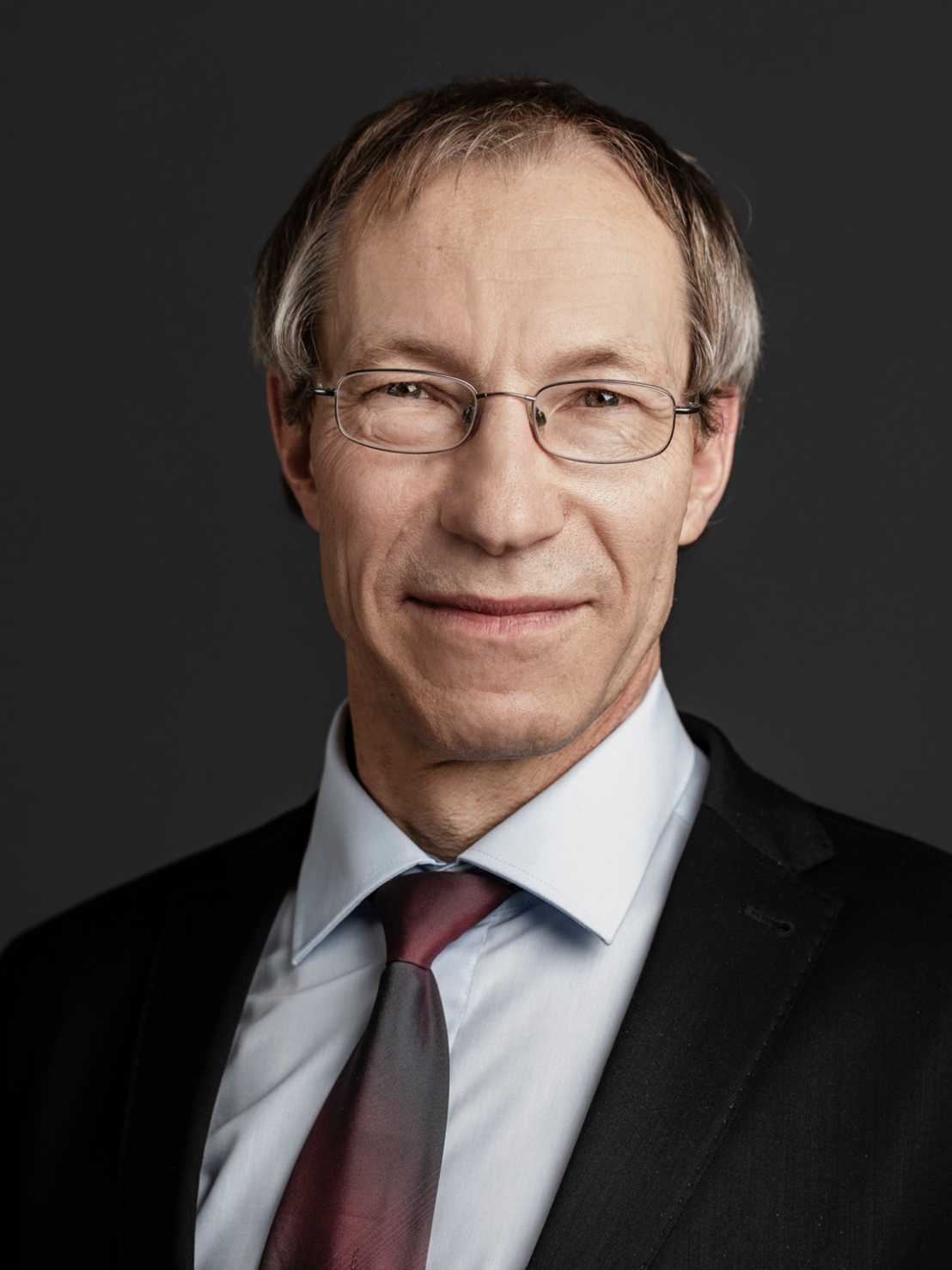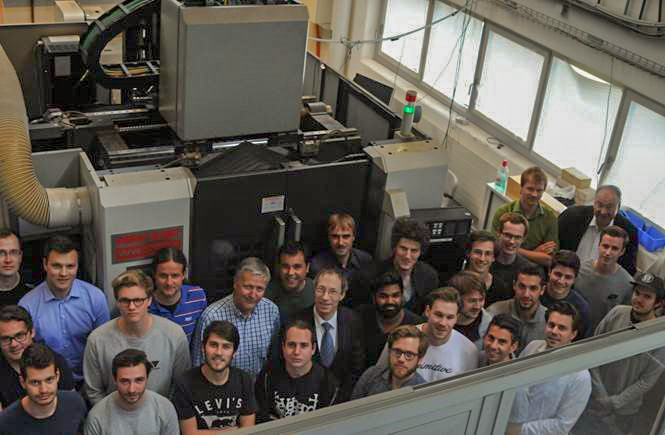"Machine tool is cool"
Spin-offs, focus projects, industrial partnerships: Konrad Wegener has made a lot of things happen in his 20 years at the Department of Mechanical and Process Engineering. His approach has been to tackle problems courageously and to solve them. Konrad Wegener will retire at the end of July 2023.

Your time at the D-MAVT will end in 2023. What will you always remember in retrospect?
After 20 years with a scope of responsibility that included 120 employees at its peak, the collection of anecdotes would fill over 50 pages. So instead of looking back, I would rather give advice for the future.
In both 2017 and 2018, I attended an important international conference on manufacturing technology research. First in Lugano, Switzerland, and the following year in Japan's capital, Tokyo. In Lugano we were unable to secure a high-profile speaker for the opening event, whereas in Japan the Emperor and Empress came in person to pay tribute to the manufacturing technology community. Two ministers were also in attendance. I think this illustrates the difference in appreciation of manufacturing technology in the two countries.
Yet there is probably no country in the world where the machine tool is more important than in Switzerland. And I am concerned about how such an important pillar of the Swiss economy will survive in the future.
What were the highlights of your work in research and teaching at ETH Zurich?
There are many project highlights – after all, more than 100 doctoral theses have been written at the IWF (Institute for Machine Tools and Manufacturing).
For example, the world's first helical diamond drill originated at our institute. With this technology, brittle-hard materials that could previously only be ground can now also be milled. This is used in the dental sector for example. This technology also formed the basis of our spin-off 6C Tools.
In addition, we have contributed significantly to the advancement of artificial intelligence for the optimization of manufacturing processes and for the operation of machine tools. For example, we have developed an ultra-precise planar guided milling machine as well as a 5-axis machine in which we can fully compensate for the deformation caused by temperature effects. We have also improved EDM (Electric Discharge Machining) technology in terms of minimizing electrode wear and developed self-sharpening drilling tools for machining highly abrasive carbon fiber reinforced plastics (CFRP) for the aerospace industry. Furthermore, we have improved the grinding process, where Switzerland is one of the leading nations in the world in terms of high-precision manufacturing, by monitoring the process with AE sensors (Acoustic Emission) or by wire erosion to dress grinding wheels in the process - as well as much more.
In total, five spin-offs have emerged from research at my institute, including Atlas VR and Suncar HK AG in addition to 6C Tools, and we have helped with one more.
And finally, I have supervised several focus projects together with my colleagues. The best known is probably the four-seater electric aircraft e-Sling, which was recently exhibited at the AERO in Friedrichshafen and even flew there on its own wings. But it also includes electric excavators, motorcycles, sports cars, and various other vehicles.
Which part of your work have you enjoyed the most on a personal level?
Working with industry and our technology transfer platform inspire, as well as working with students of all levels.

What will you miss most after you retire?
The work with machine tools - "machine tool is cool". The collaboration with industry partners and, of course, teaching.
Especially in the past ten years, I felt like being part of a big family of manufacturing engineers in Switzerland. To be surrounded by a network of machine manufacturers, machine users and component manufacturers. This was particularly evident last year during an excursion to various companies. Each of these companies had invited an employee who had studied or completed his or her doctorate with me. What a joyful reunion!
But I also must admit that it took quite a few years until I was accepted in this family. Therefore, it would be important to introduce another colleague from ETH into these circles soon.
What advice do you have for young researchers who, like you, want to pursue a career in science?
My first tip is to first go into industry and see what the real challenges are that need to be solved. Second, you have to learn to get to the heart of a problem and fix it - or, as I like to say, you have to "always reach courageously into the sh...".
Further, in my opinion, it is not enough to settle for a 4.0. Especially regarding your education, a 6.0 has to be the goal. And at the job, too, you should regularly ask yourself what contribution you are making and how valuable it really is.
What are your plans?
First, I will finish supervising my 20 remaining doctoral students and fulfill one or two more tasks at inspire.
In my hometown of Göppingen, I also bought a dilapidated house years ago that I want to restore. I still have about 200 years of work to do there. The outer and inner-city wall used to run along the property, and I would like to make it visible again.
And finally, after 25 years of weekend marriage, I would like to spend more time with my wife and children again and try to make up for at least some of that time with my family.
What should not be missing from your desk in the future?
I can work at any desk. It fills up by itself in no time. But without coffee, it's going to be difficult.
Professor Konrad Wegener (65)
Professor of Production Engineering and Machine Tools
Institute for Machine Tools and Manufacturing (IWF)
At D-MAVT from 2003-2023
